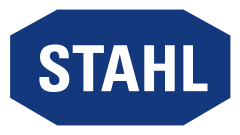R. STAHL AG's Supervisory Board is formed in accordance with Germany's One-Third Participation Act (DrittelbG) and consists of nine members: Three members are employee representatives, and the other six are shareholder representatives Three of the six members of the capital side are from the founding families. In the opinion of the Supervisory Board, more than half of these members should be independent within the meaning of the recommendations under Chapter C. of the German Corporate Governance Code as amended on 28 April 2022, i.e. at least four members. According to the recommendations in C. 6 and C. 7 (independence from the company and the Management Board), the indicators listed in C. 7 and the recommendations in C. 9 as well as the explanatory memorandum of the Code on C. 6 (independence from a controlling shareholder), all shareholder representatives are currently independent in the opinion of the Supervisory Board. It is true that in 2021, the Chairman of the Supervisory Board, Peter Leischner, has been a member of the Board for more than 12 years, so that one of the Code's indicators against the independence of the Executive Board and the company is present. Nevertheless, the Supervisory Board considers Peter Leischner to be independent and justifies this as follows in accordance with recommendation C.8 of the Code: Peter Leischner's shareholding in the company is relatively small, he has never been an employee or member of the Executive Board and has no significant business relationship with R. STAHL AG. Above all, however, in the opinion of the other shareholder representatives, Peter Leischner's contributions and the positions he has expressed in the course of his entire Supervisory Board activities demonstrate his independent position towards the company.
R. STAHL's international customer orientation is also reflected in the Supervisory Board, which includes several members with experience abroad. The proportion of women is 22.22 %.
There are no conflicts of interest among the current members of the Supervisory Board; in the case of new candidates, careful checks are carried out in advance to establish whether there are any conflicts of interest. On December 31, 2023, members of the Supervisory Board held 2.15 % of the voting capital. Regarding the remuneration of the Supervisory Board, reference is made to the system of remuneration of the Supervisory Board approved by the 29th Annual General Meeting on 13 July 2022 with a majority of 82.98 % (available here). The actual remuneration is broken down and presented individually in the remuneration report.
The Supervisory Board of R. STAHL AG has the task of appointing the Executive Board of the company, supervising it in the management of the business and assisting it in an advisory capacity.
The Supervisory Board meets at least five times a year to discuss the issues under discussion and to pass the necessary resolutions, usually on the basis of reports submitted by the Executive Board and documents received in advance to prepare for the meeting. If necessary, the Supervisory Board convenes for additional or extraordinary meetings. In 2023, the Board held five ordinary meetings and one constituent extraordinary meeting. The possibility of adopting resolutions by written circular is used relatively rarely and only in cases that are particularly urgent. Minutes of the meetings are prepared and distributed to all members of the Supervisory Board as well as to the Executive Board of the company (only insofar as it participated). Resolutions passed by circular letter are documented in the form of minutes of the adoption of the resolutions. In addition, there are information meetings without a formal session character, if required.
In addition to the constant discussion of strategic issues, the Supervisory Board decides on the adoption of the annual financial statements and examines the planning for the next three years submitted to it by the Executive Board. Furthermore, the Supervisory Board deals with the analysis of the operational development of the R. STAHL Group as well as with questions of risk management and compliance.
In personal meetings as well as through verbal or written statements, the Executive Board regularly informs the Chairman of the Supervisory Board about the development of the company and discusses current issues with him. Where necessary, the Chairman of the Supervisory Board reports on the topics discussed between the Executive Board and him at the meetings of the Board.
Each year, the Chairman of the Supervisory Board describes the activities of the Supervisory Board and its committees in his report to the shareholders, which is printed in the Annual Report. It is also available at the Annual General Meeting and will be read out on request.
In the 2023 reporting year, the Supervisory Board again followed the recommendations of the GCGC and complied with them to the extent that seems appropriate for a company of the size of R. STAHL AG in terms of good corporate governance. The updated Declaration of Conformity issued in December 2023 is available to shareholders on R. STAHL AG's website and in the Annual Report.
The Supervisory Board conducts an annual self-assessment (formerly "efficiency review") with the help of a continuously developed questionnaire. The questionnaire covers all areas of the Board's work, such as the supply of information, the culture of discussion and the cooperation among each other. The evaluation is anonymous. The results are submitted to the Chairman of the Supervisory Board who presents them in detail to the entire Board for discussion at the following meeting. Joint findings are implemented (information in accordance with D.12 GCGC 2022).








